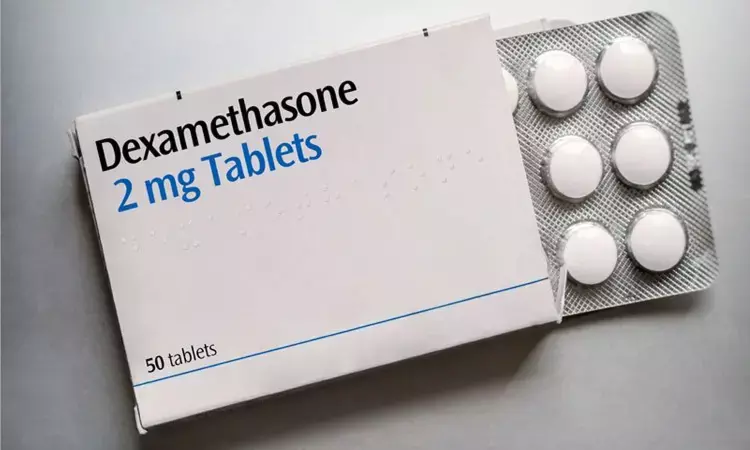- Home
- Medical news & Guidelines
- Anesthesiology
- Cardiology and CTVS
- Critical Care
- Dentistry
- Dermatology
- Diabetes and Endocrinology
- ENT
- Gastroenterology
- Medicine
- Nephrology
- Neurology
- Obstretics-Gynaecology
- Oncology
- Ophthalmology
- Orthopaedics
- Pediatrics-Neonatology
- Psychiatry
- Pulmonology
- Radiology
- Surgery
- Urology
- Laboratory Medicine
- Diet
- Nursing
- Paramedical
- Physiotherapy
- Health news
- Fact Check
- Bone Health Fact Check
- Brain Health Fact Check
- Cancer Related Fact Check
- Child Care Fact Check
- Dental and oral health fact check
- Diabetes and metabolic health fact check
- Diet and Nutrition Fact Check
- Eye and ENT Care Fact Check
- Fitness fact check
- Gut health fact check
- Heart health fact check
- Kidney health fact check
- Medical education fact check
- Men's health fact check
- Respiratory fact check
- Skin and hair care fact check
- Vaccine and Immunization fact check
- Women's health fact check
- AYUSH
- State News
- Andaman and Nicobar Islands
- Andhra Pradesh
- Arunachal Pradesh
- Assam
- Bihar
- Chandigarh
- Chattisgarh
- Dadra and Nagar Haveli
- Daman and Diu
- Delhi
- Goa
- Gujarat
- Haryana
- Himachal Pradesh
- Jammu & Kashmir
- Jharkhand
- Karnataka
- Kerala
- Ladakh
- Lakshadweep
- Madhya Pradesh
- Maharashtra
- Manipur
- Meghalaya
- Mizoram
- Nagaland
- Odisha
- Puducherry
- Punjab
- Rajasthan
- Sikkim
- Tamil Nadu
- Telangana
- Tripura
- Uttar Pradesh
- Uttrakhand
- West Bengal
- Medical Education
- Industry
Dexamethasone trial results confirm COVID-19 benefits but also risks

The keenly-awaited full results from a UK trial of the steroid dexamethasone were published Friday, confirming its life-saving benefits for COVID-19 patients on ventilators but suggesting it may cause harm if given too early.
A total of 2,104 hospitalized patients were assigned to receive six milligram daily doses of the medicine for up to 10 days, and 4,321 to receive usual care, with the rate of deaths compared after 28 days.
Among patients on ventilators, the rate of death for patients on the drug was 29.3 percent compared to 41.4 percent on those without.
In other words, this group saw a 29 percent reduction in mortality, just under a third.
In patients who were given oxygen but through less invasive means, the benefit was smaller—23.3 percent on dexamethasone died versus 26.2 who were not on it.
However, there was no benefit among the group who weren't receiving any oxygenation at the time the trial started.
In this cohort, 17.4 percent on the steroid died compared to 14 percent who did not receive it—suggesting the drug increased their mortality risk.
This is because the drug works by suppressing the abnormal immune response that damages the body's organs, rather than attacking the virus.
Speaking to AFP in June, leading US scientist Anthony Fauci cautioned that dexamethasone should not be prescribed too soon after a person was infected.
"It had no effect, if not maybe even a suggestion of making things worse early on," he said.
"This is perfectly compatible with knowing that early on in infection, you need the immune system to suppress the virus."
The authors of the paper, which appeared in the New England Journal of Medicine, added that getting benefit from the drug "is dependent on a selection of the right dose, at the right time, in the right patient."
They added that, as far as the COVID-19 illness is concerned, for patients who require oxygen, the abnormal immune response seems more responsible for harm than the replication of the virus in the body.
But they cautioned that this hypothesis should not be applied to other viral respiratory illnesses, like SARS, MERS and influenza, without further study as they may have different impacts.
Dexamethasone was adopted into UK practice on June 16, the day when the initial results were announced, and is also recommended by the US National Institutes of Health.
On its website, the NIH cautions that it isn't yet known how well dexamethasone might work in combination with the anti-viral drug remdesivir, which has proven beneficial when used alone.
It adds that patients on the drug should be closely monitored for secondary infections and high blood sugar.
It is also known that use of corticosteroids can also re-activate previous infections that were lying dormant, like the hepatitis B virus or tuberculosis.
For more details click on the link: DOI: 10.1056/NEJMoa2021436
Hina Zahid Joined Medical Dialogue in 2017 with a passion to work as a Reporter. She coordinates with various national and international journals and association and covers all the stories related to Medical guidelines, Medical Journals, rare medical surgeries as well as all the updates in the medical field. Email: editorial@medicaldialogues.in. Contact no. 011-43720751
Dr Kamal Kant Kohli-MBBS, DTCD- a chest specialist with more than 30 years of practice and a flair for writing clinical articles, Dr Kamal Kant Kohli joined Medical Dialogues as a Chief Editor of Medical News. Besides writing articles, as an editor, he proofreads and verifies all the medical content published on Medical Dialogues including those coming from journals, studies,medical conferences,guidelines etc. Email: drkohli@medicaldialogues.in. Contact no. 011-43720751


